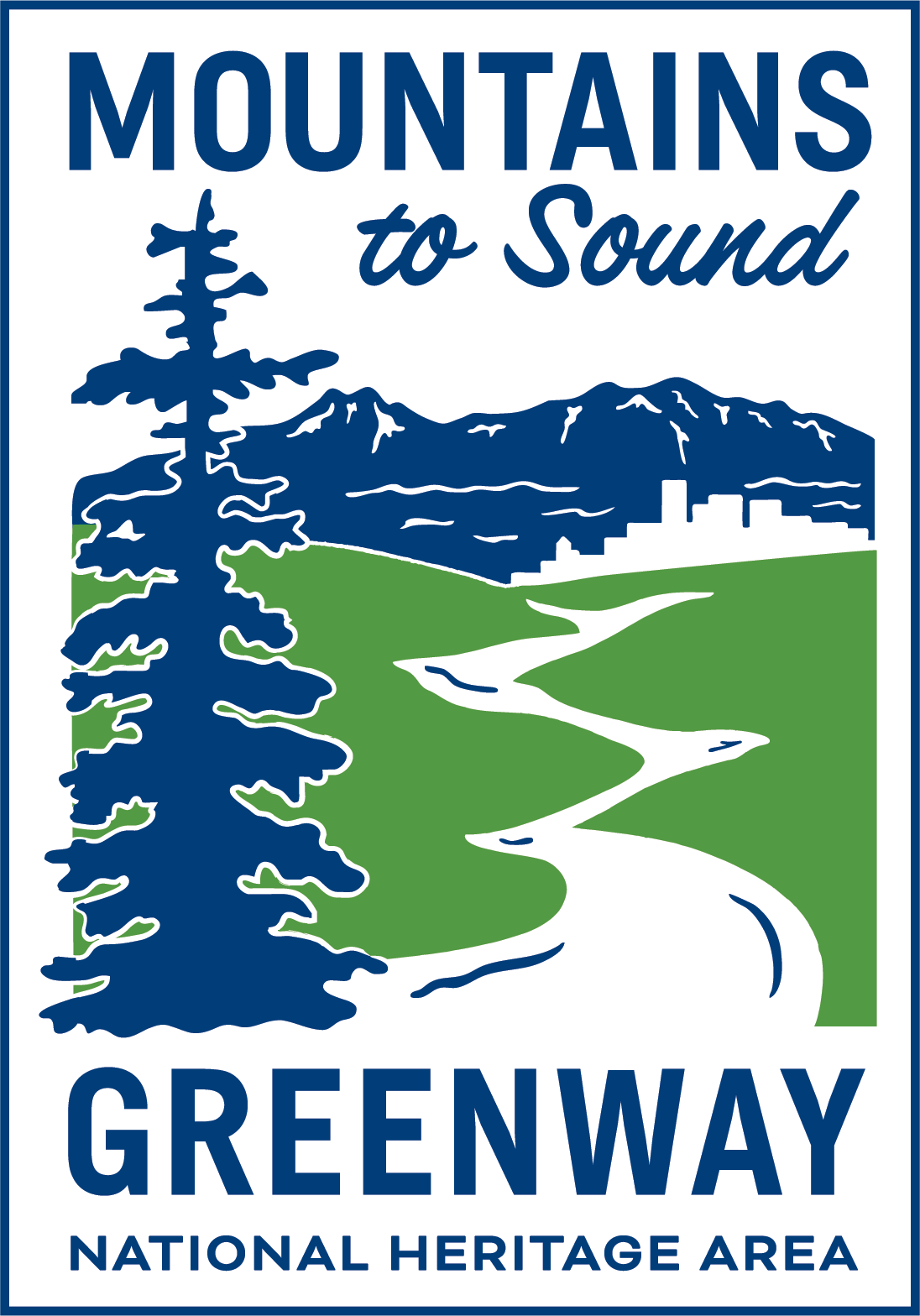$1.9 Billion for Public Lands Is at Risk: Your Voice Is Needed
Is there a trail that you think needs maintenance? If it’s on federal land, it might be on the list of projects that will be funded by the Great American Outdoors Act (GAOA) in 2025, the program’s final year of authorized funding.
GAOA created the Legacy Restoration Fund, which provides up to $1.9 billion annually to protect public lands and improve opportunities for the public to access them — by funding maintenance projects on lands managed by the U.S. Forest Service, National Park Service, U.S. Fish and Wildlife Service, Bureau of Land Management, and Bureau of Indian Affairs. With funding set to run out in 2025, we are gathering the support of people like you who love the outdoors to help us push to renew GAOA’s Legacy Restoration Fund.
Bipartisan support and leadership from Washington’s congressional delegation helped pass GAOA in 2020. Outdoor nonprofits, including Washington Trails Association (WTA) and the Mountains to Sound Greenway Trust (Greenway Trust), and people like you who contacted their members in Congress, were all part of the push that made this vital funding for public lands a reality.
GAOA has made a big difference here in Washington. Since its implementation, the Forest Service has received $75 million for 33 projects across our state. To date, 300 projects have been completed and nearly 400 are in progress for improvements on Forest Service lands nationwide. The funding fixes trails, roads, bathrooms and campgrounds and supports millions of outdoor experiences in Washington state alone, including the popular Mountains to Sound Greenway.
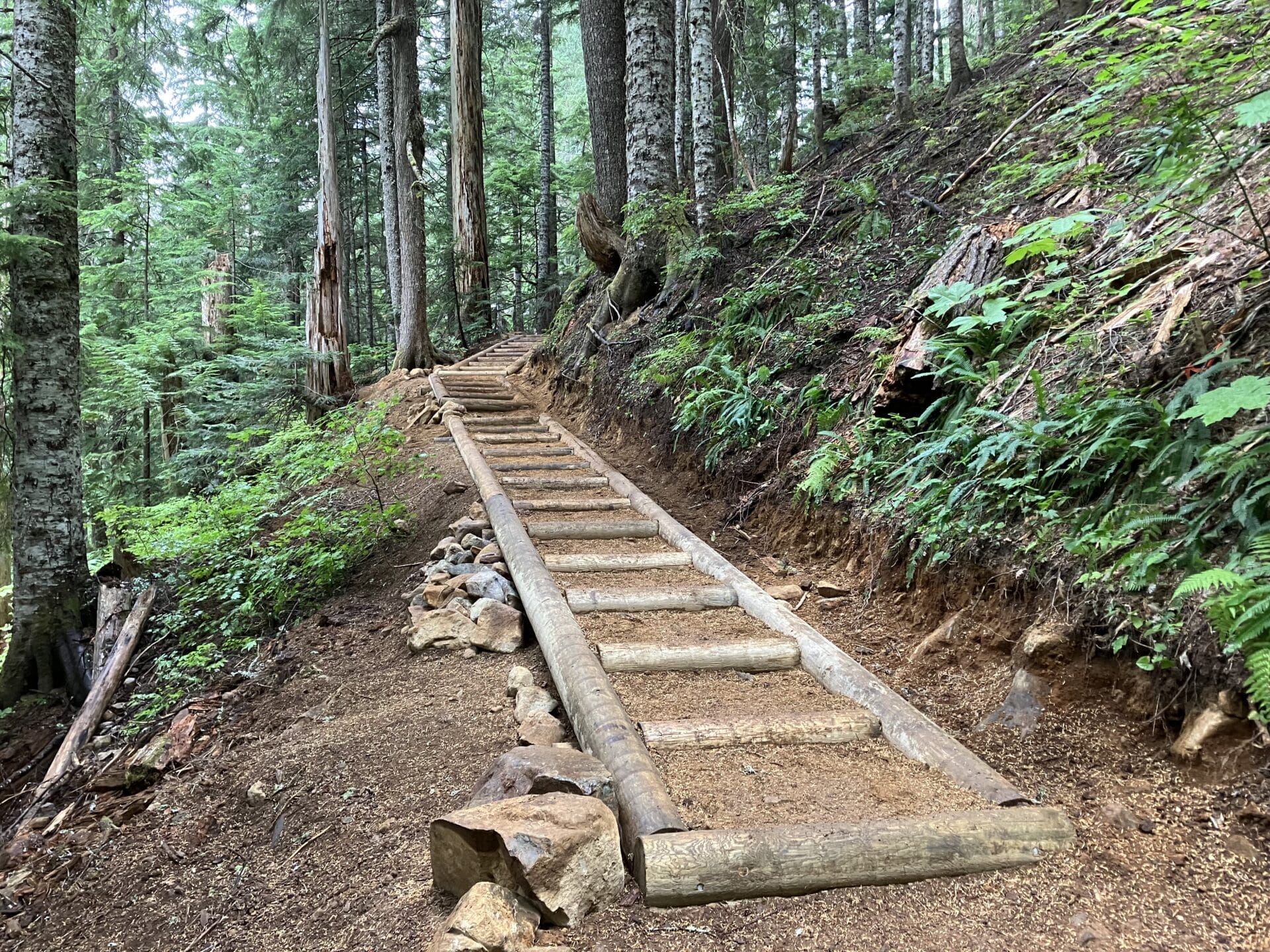
Getting to Work in an Area Critical for Nature, Culture, and Recreation
The Mountains to Sound Greenway is an ecologically diverse corridor spanning 1.5 million acres from Seattle to Ellensburg along Interstate 90. It’s also home to some of the most popular outdoor destinations for the growing population of the Puget Sound area. Congress designated the Mountains to Sound Greenway as a National Heritage Area in 2019 due to its unique blend of natural, historic, and cultural resources.
The heritage designation, high visitation, and the maintenance backlog meant that when GAOA passed, this area became a priority for trail investments. The unlocked funding addressed 17 maintenance projects across two national forests (Mt. Baker-Snoqualmie and Okanogan-Wenatchee).

If you’ve spent time in the Greenway NHA, you’ve likely visited a site that’s benefited from GAOA. The funding helped support the following projects, and many more:
- Repair a severely eroded half-mile section of the trail to Snow Lake, including construction of new stairs.
- Redesign the Denny Creek/Franklin Falls trailhead to build a new parking lot with an additional 100 spaces, a new toilet, information kiosk, connector trails and a connector road.
- Reroute 2.6 miles of the Lake Annette Trail to make it safer for visitors and minimize erosion, keeping waterways clean.
- Improve Pratt Bar in the Middle Fork Snoqualmie River Valley, including toilet installation.
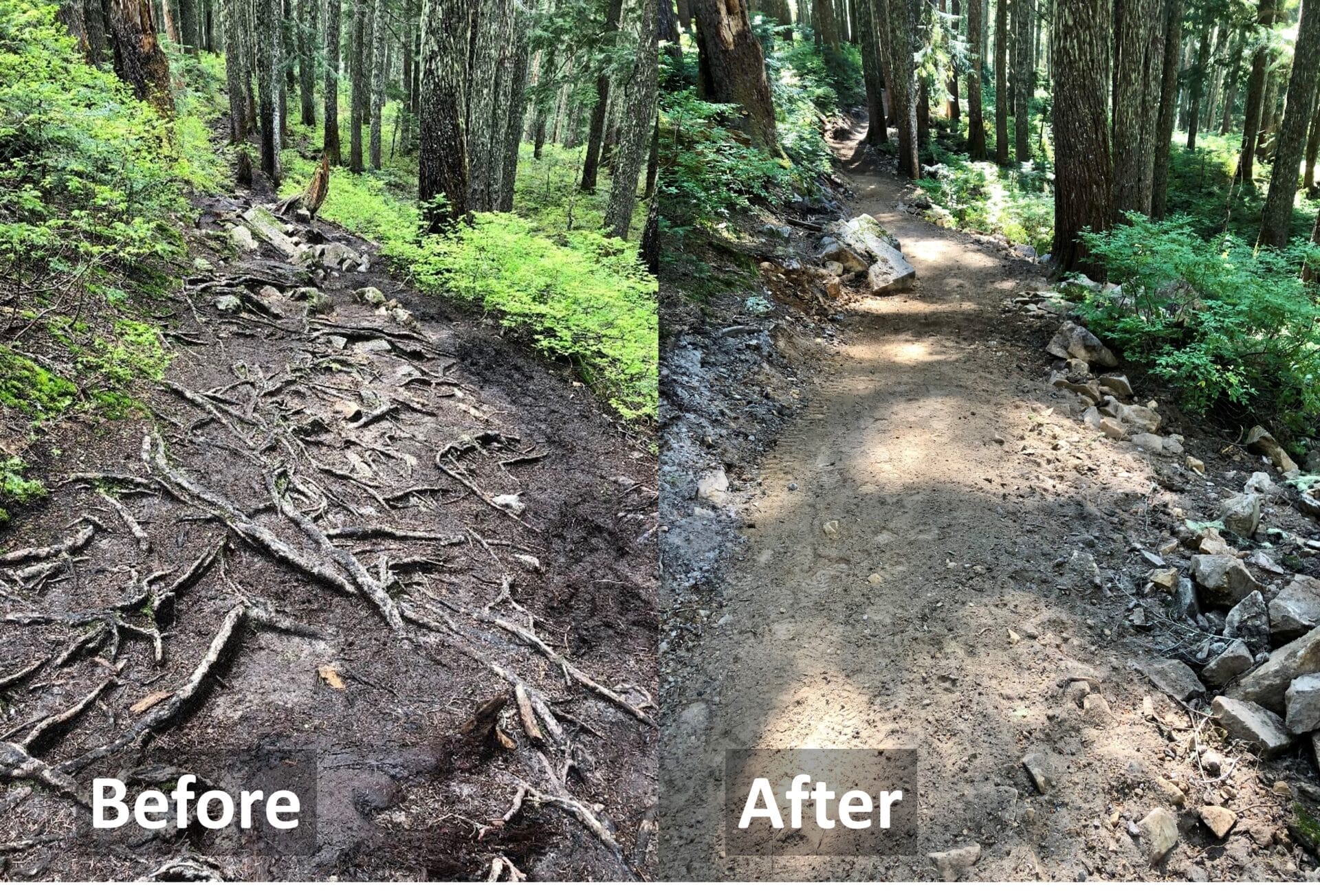
Volunteers and Nonprofit Partnerships Help Federal Funding Go Farther
Leveraging volunteer trail work helps stretch GAOA funds as they address maintenance needs. GAOA funded 2,643 hours of trail work by WTA staff and volunteers in the Greenway NHA. Those are the hours of work funded directly by GAOA; WTA was also able to contribute additional time to Greenway projects with funding from other sources. The Greenway Trust invested nearly 2,000 hours of staff and crew time supporting GAOA project planning and implementation.
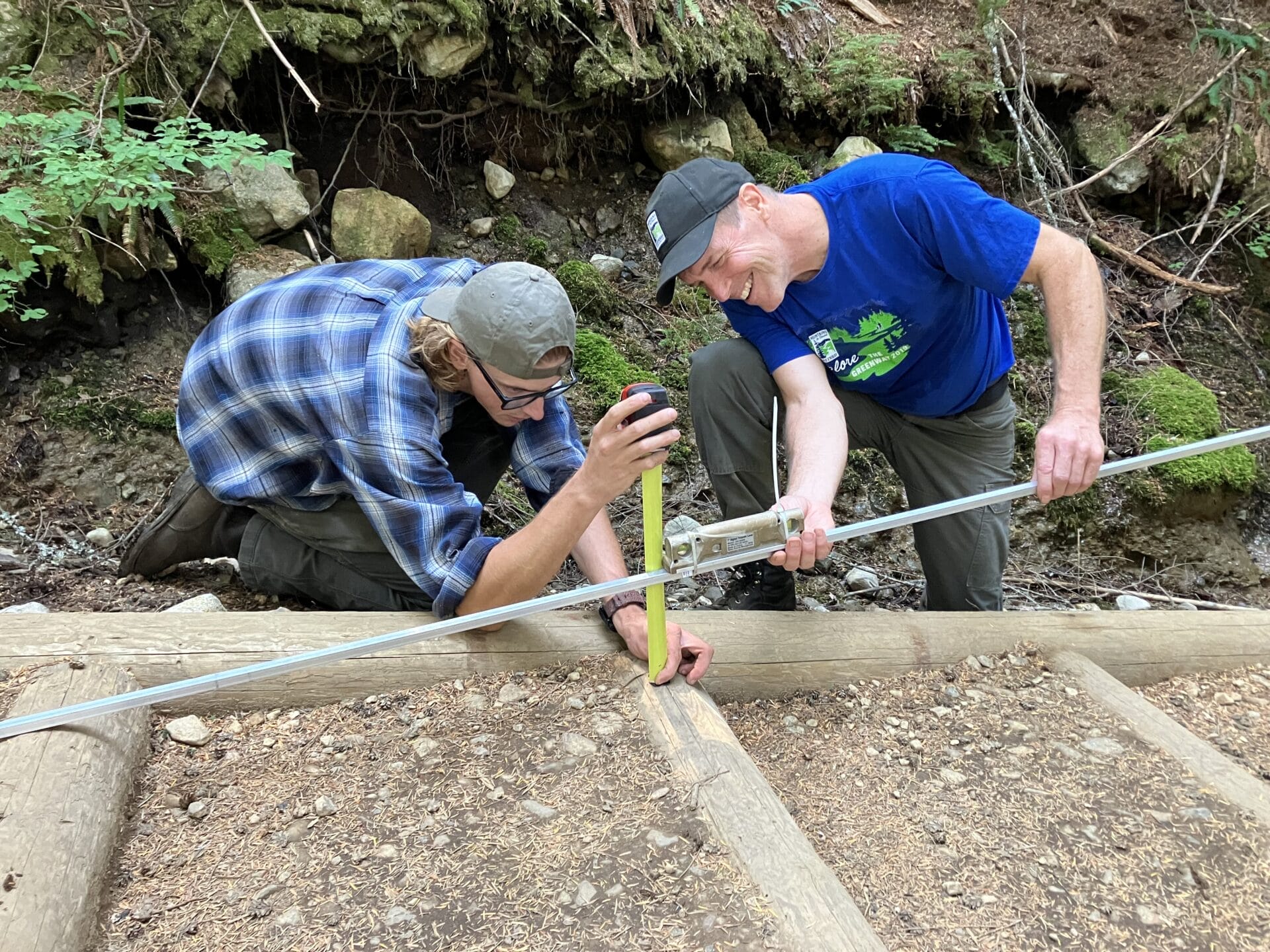
Partnerships also provide valuable learning opportunities. Working on the Franklin Falls trailhead project introduced 15 high school interns from the Greenway Trust’s Youth Engaged in Sustainable Systems program to recreation careers and helped them develop on-the-job skills with Forest Service staff.
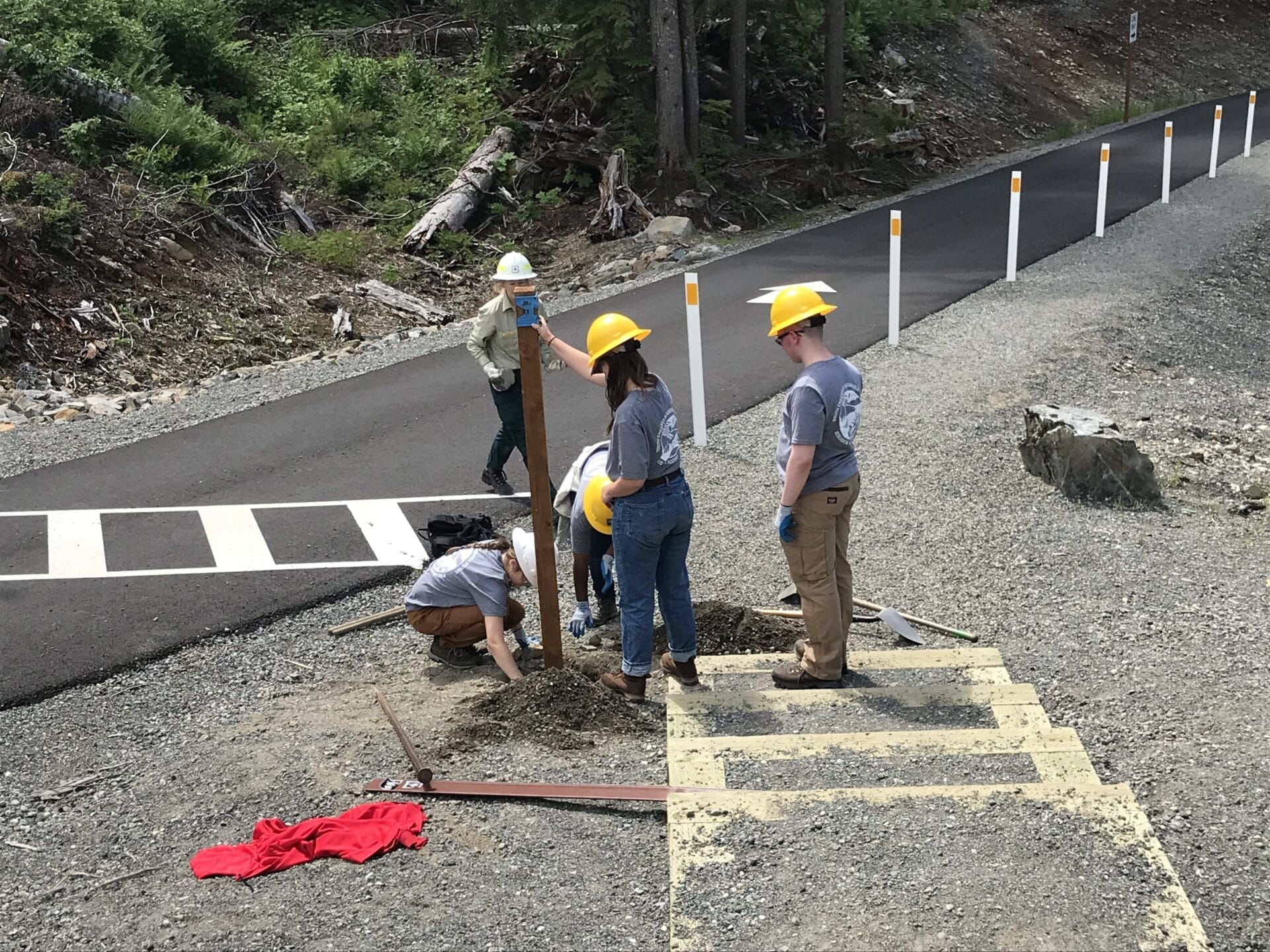
Partnerships also helped the Greenway Trust make a major stride for other nonprofits nationwide as they navigated the GAOA funding. A longstanding Forest Service policy required nonprofits to provide a cash match for contracts, a barrier for many to work with the Forest Service. Greenway Trust staff met with Forest Service staff at different levels, ultimately removing this requirement, making it easier for organizations like the Greenway Trust, WTA, and many others across the country to partner on important projects.
“The benefits are countless. GAOA helped National Forests and dramatically ramped up our work to reduce major maintenance backlogs on trails, campgrounds, and access roads. What we found is that there is so much more work to do to be responsive to public demand for safe and accessible recreation opportunities. I hope we can continue this into the future.”
Alex Weinberg, Forest Service Recreation Management Specialist
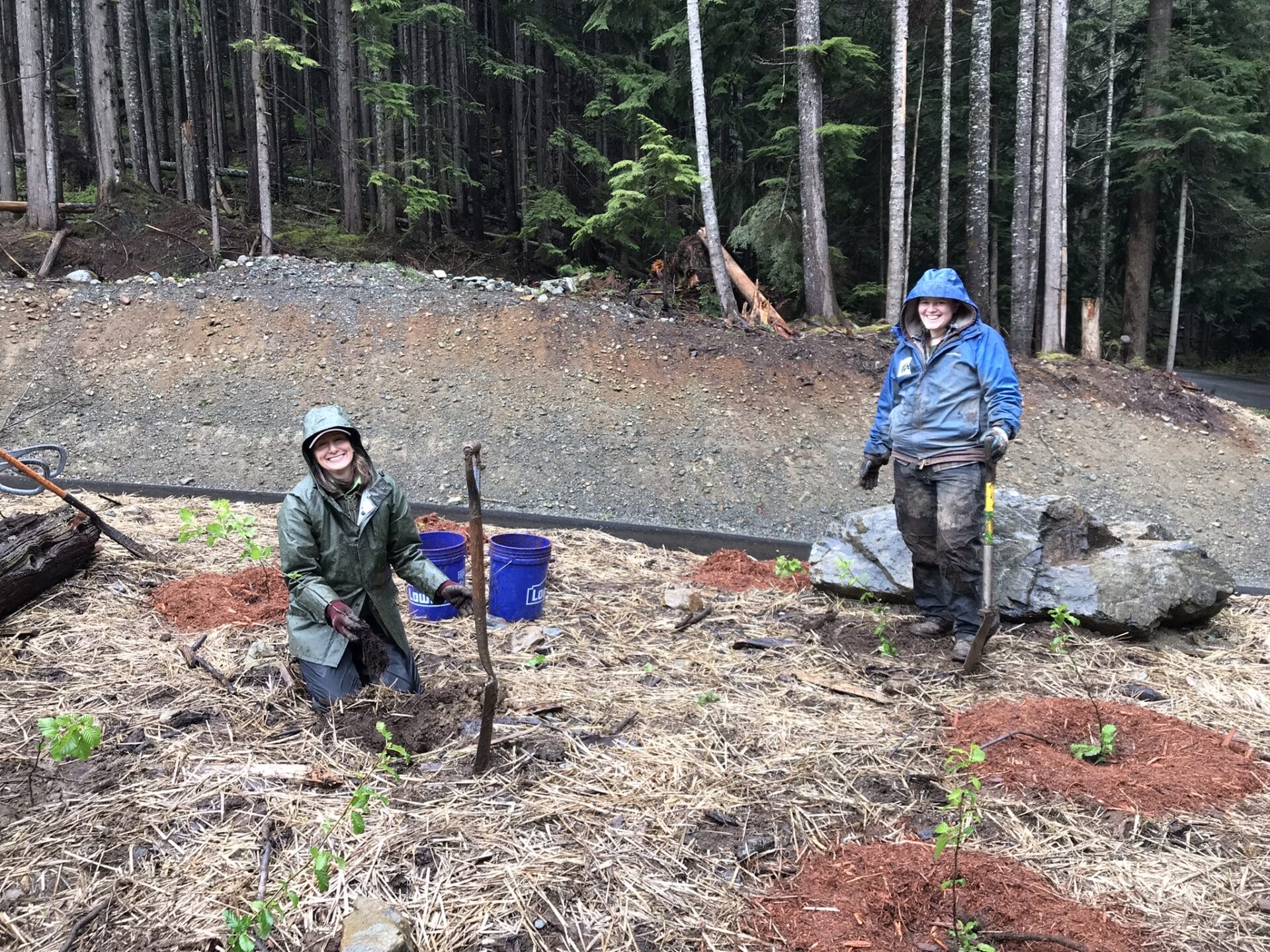
Help Renew GAOA’s Legacy Restoration Fund
Nationally, the maintenance backlog on National Park Service lands is $23.3 billion, $8.6 billion on Forest Service lands, $2 billion on US Fish & Wildlife lands, and $4.77 billion on Bureau of Land Management lands — for a total of roughly $38.7 billion on federal lands.
GAOA is a great step, but investment in our public lands is not keeping up with the size of the federal budget and increased outdoor recreation. “As pressures from increased visitation, aging infrastructure and climate change intensify, the sustainability of outdoor recreation is more crucial than ever,” said Whitney Potter Schwartz, senior vice president at Outdoor Recreation Roundtable.
As GAOA enters its final year, we have the opportunity to work with our representatives in Congress to renew this vital funding in 2026. While renewal of GAOA will not fully close the gap on the billions of dollars of deferred maintenance, it is an essential piece of the puzzle to address the areas of greatest need and impact.
Help Us Secure Future Funding for Public Lands
Sign WTA’s petition to support renewal of Great American Outdoors Act funding for the future!
Many other trails in the Mountains to Sound Greenway are 30-50 years old, with significant signs of wear as the Forest Service’s backlog of deferred maintenance projects continues to grow. And dozens of other locations on federal lands all across Washington are waiting in the wings for their turn to be improved. That’s why it’s important to renew GAOA for public lands in 2026.
This is an investment in our beloved outdoor places, in our economy, and in the health of our communities.
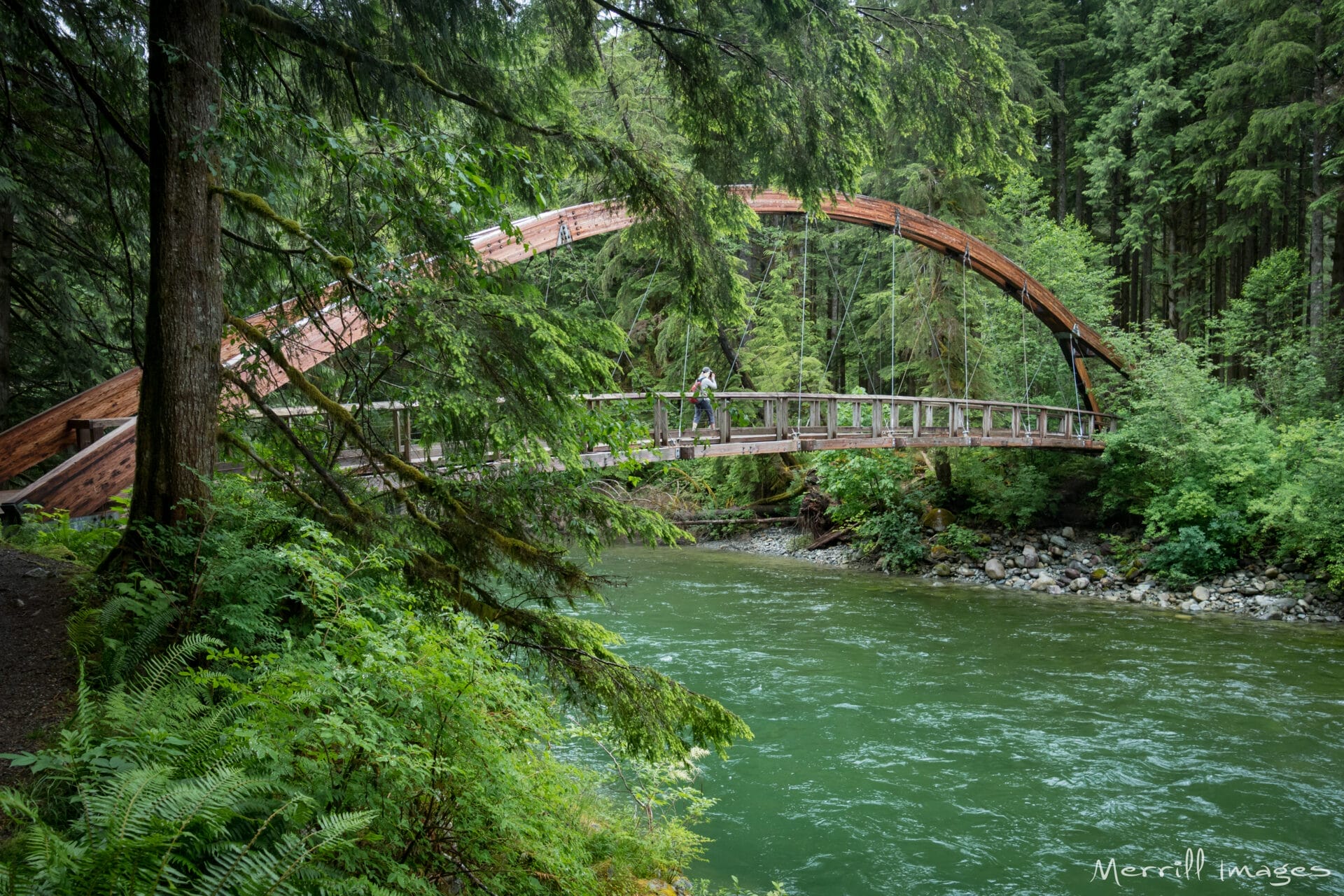
Trails Bring Real Benefits
Each year, trails contribute over $8.2 billion to Washington state’s economy and support over 81,000 jobs. For every $1 spent on trails in our state, it saves $2.94 in healthcare costs. Check out the Economic and Health Benefits of Walking, Hiking, and Bicycling on Recreational Trails in Washington State for more details.
We are continually learning more about the benefits of time spent outdoors. We already know that trails and other infrastructure that gets people outside supports mental and physical health. This is important for everyone, and especially beneficial for children and also for disadvantaged communities, according to the Washington State Recreation and Conservation Office’s “Benefits of Recreational Trails” report.
“Trails are more than worth the investment they require.”
Andrea Imler, WTA Advocacy Director
